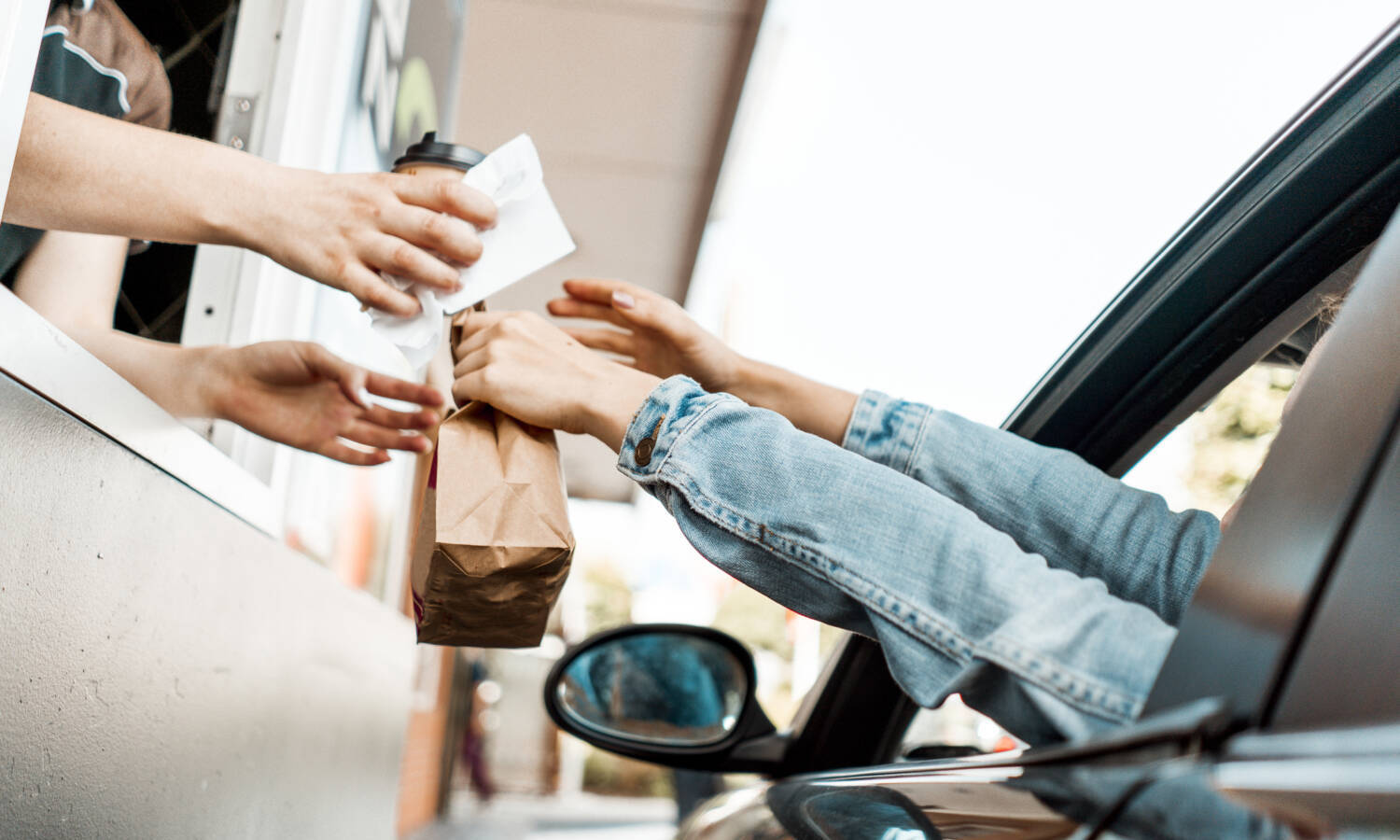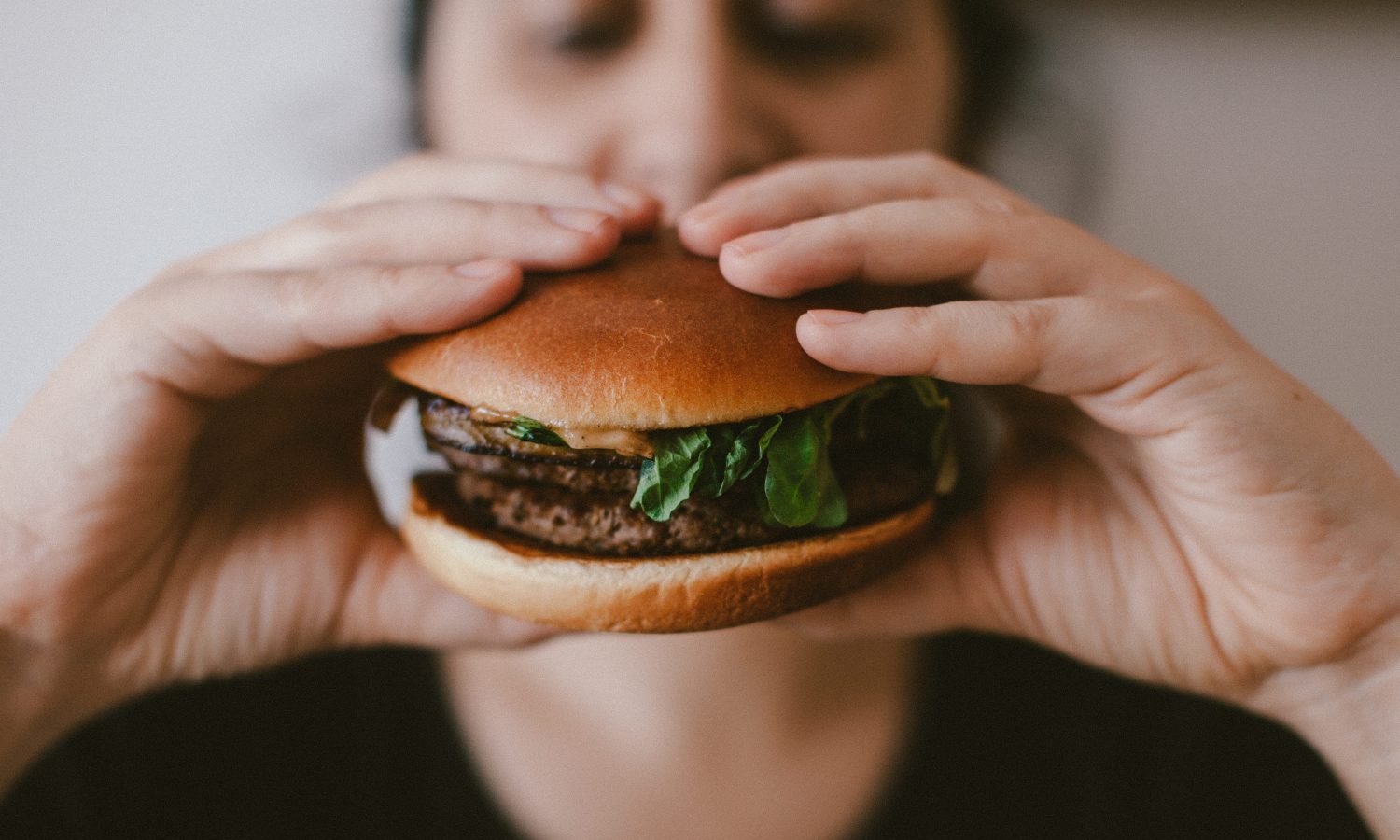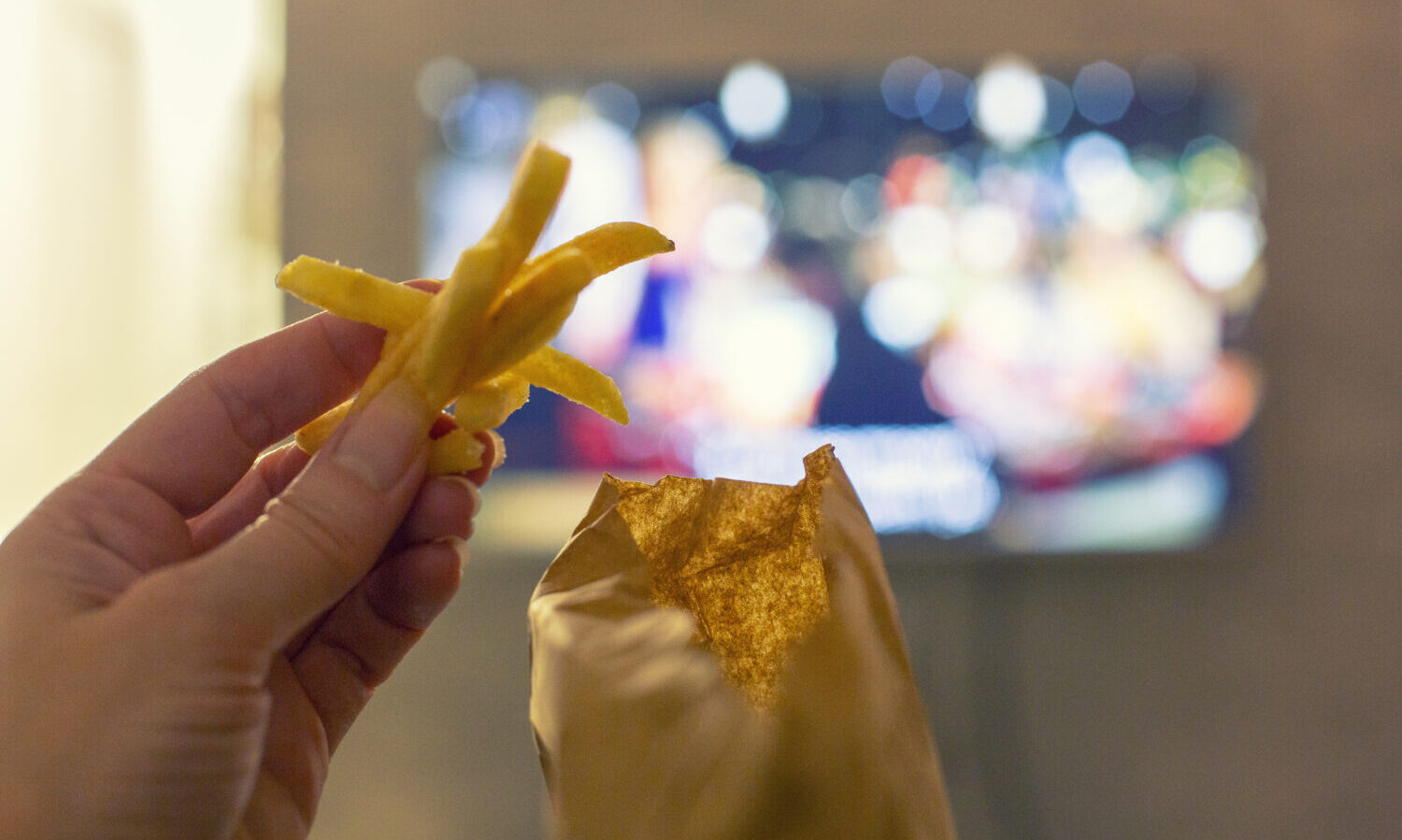Cannabis produces its effects by binding to cannabinoid receptors in your body, and CB1 receptors are found in a variety of tissues involved in feeding and appetite control.
What comes to mind when you think of the word “munchies”? Maybe you think of cartons of ice cream, sleeves of cookies, or bags of chips. Maybe you picture a stoner feasting on junk food.
The munchies is defined as the intense hunger, particularly for sweet and savory treats, that strikes you after you use cannabis. While you may think of the munchies as an adverse side effect, many people use cannabis with the goal of stimulating their appetite.
What does it look like to use cannabis to stimulate your appetite? It could be a jet-lagged business executive who uses cannabis to get hungry for dinner despite his body telling him it is the middle of the night. Or a marathoner who takes a few drops of weed oil to stimulate her appetite after a grueling training session. Or a person battling cancer who uses medical marijuana to stimulate her appetite during chemotherapy.
Is cannabis the right choice to help you stimulate your appetite? Jointly can help you find out, but first let’s explore what it is known about cannabis and the munchies, and try to answer the question, “Why does weed make you hungry?”

Does Weed Make You Hungry?
While people may have different results as to whether cannabis helps them relieve mild daily stress or whether cannabis improves their sleep, cannabis reliably stimulates appetite in animals with an endocannabinoid system. Weed is so consistent in causing the munchies that cannabis has been used as an appetite stimulant for thousands of years. The earliest record of using cannabis to treat appetite loss comes from 300 A.D. in India and this tradition continues in modern folk medicine traditions throughout Asia. For example, in Thailand “cannabis is frequently used to stimulate the appetite of sick people and make them sleep.” So, why does weed make you hungry?
Why Does Weed Give You the Munchies?
Weed gives you the munchies because of the way the endocannabinoid system (ECS) interacts with feeding behavior. The ECS is a “ubiquitous system that provides homeostatic balance to the nervous and immune systems, as well as many other organ systems.”
The ECS is composed of the endogenous ligands (AEA and 2-AG) also known as endocannabinoids (eCBs), their receptors (CB1 and CB2), and the enzymes that degrade and recycle the ligands. Ligands and receptors are like keys and locks. When the ligand binds to the receptor, it produces a signal in the cell. All animals except insects have an ECS. This reality indicates that the ECS “rose concurrently with the development of the nervous system as multicellular animals developed increasing complexity.”
The Hydra (H. vulgaris) is a type of small, fresh-water organism that was one of the first animals with a neural network. According to researchers who studied the Hydra’s ECS, the major function of this system “in this primitive organism was determined…to control its feeding response.” Evidently, the ECS plays an important role in controlling feeding behavior. Research has shown that when you stimulate the ECS in humans, rats, or worms with exogenous cannabinoids or eCBs, the animal will eat more food and prioritize palatable foods. In humans and rats, palatable food means sweet food. But why does weed make you hungry?
Why Does Weed Make You Hungry?
Your body normally feels hunger in response to certain stimuli: emptiness in the stomach and intestines, blood sugar levels, hormone levels, and signals from the hypothalamus. Cannabis produces its effects by binding to cannabinoid receptors in your body, and CB1 receptors are found in a variety of tissues involved in feeding and appetite control.
For example, CB1 receptors are distributed throughout your stomach and small intestine. These organs release ghrelin, the hunger hormone, based on signals from your hypothalamus. Ghrelin and leptin are two hormones that have been recognized to have a major effect on energy balance. Leptin suppresses the desire to eat, while ghrelin stimulates hunger and plays a role in “meal initiation.” Stimulating CB1 receptors in your GI tract can directly stimulate the release of ghrelin.
RELATED: How Your Endocannabinoid System Affects Your Cannabis Experience
Fascinatingly, circulating levels of leptin and circulating levels of eCBs have an inverse relationship. Leptin suppresses appetite by acting on receptors in the hypothalamus. When circulating levels of eCBs are high, leptin is low. And after you have eat a large meal, leptin levels rise and eCB levels fall. Additionally, cannabis causes the munchies because THC binds to CB1 receptors in your hypothalamus, which stimulates the release of ghrelin and initiates various other appetite-stimulating processes. Satiety is partly modulated through special neurons (POMC neurons) in the hypothalamus.
Activating CB1 receptors inhibits these neurons, so they stop sending satiety signals to your brain, which leads to a change in hormone and peptide levels, which stimulates hunger and the desire to eat. Not only does cannabis stimulate many of the processes involved in feeding and appetite, it also enhances the pleasure from eating. THC binding to CB1 receptors in the basal ganglia of your brain “may enhance eating pleasure,” and THC binding to CB1 receptors in the limbic forebrain may make food taste better. That is part of the answer to the question, “why does weed make you hungry?” Now let’s explore some other elements of the munchies.

Why Does Food Taste Better High?
Essentially, cannabis hijacks the pathways that your body uses to regulate your appetite and sends the signal that you are starving. Have you ever heard the phrase, “hunger is the best seasoning”? This phrase exists because hunger makes things smell and taste better; hunger “arouses sensory perception.” Until recently, scientists did not understand how hunger made food taste better, but recent studies in mice indicate that it has to do with the ECS. The ECS is known to play a role in sensory processing, including smell and taste, as well as regulation of mood, stress, and emotion.
In mice, THC binds to receptors in the olfactory bulb, “significantly increasing the animals’ ability to smell food and leading them to eat more of it.” Mice genetically engineered to lack cannabinoid receptors in their olfactory bulbs “did not demonstrate an increased appetite when given [cannabis], showing that the ‘munchies’ effect was dependent on olfactory bulb activity as well.” Fascinatingly, when the researchers deprived the mice of food for 24 hours, their natural eCB levels increased, which in turn increased their food intake as well as their sensitivity to smell. So, it seems like part of the answer to the question, “Why does weed make you hungry?” is that the ECS plays an integral role in getting an organism to start and continue eating.
Endocannabinoids, Appetite, and Reward
When we haven’t eaten for some time, eCB levels rise, which enhances our taste and smell. Why is this process evolutionarily advantageous? If we can answer this question, we might have fleshed out the answer to our original question: “Why does weed make you hungry?” The flavors in our food tell our brains about what we are eating. Salty, sweet, and umami flavors “have an evolutionary role in nutrition as a selective source of calories, proteins, and minerals; whereas bitter and sour tastes are involved in the avoidance of harmful and/or spoiled foods.”
Endocannabinoids have been shown to enhance “sweet taste sensitivity” in both humans and rats. Scientists hypothesize that cannabinoids “might act in the brain to increase hedonic impact or palatability of the taste of foods.” When feeding is driven by reward rather than internal signals related to hunger, it is called hedonic feeding.
In short, homeostatic feeding stops when an animal is sated, while hedonic feeding continues. Hedonic feeding makes evolutionary sense, but often adversely affects us in the modern world as it can lead to metabolic disorder. But in prehistory, humans rarely encountered sweet food sources. And when they did, they wanted to eat as much of it as possible. Sweet foods were typically seasonal and energy dense, so it was advantageous to keep eating long after you were full. People who ate more of that food at once and stored that energy as body fat were more likely to be successful.
RELATED: 10 Ways Cannabis Can Enhance Your Day
Scientists have found that injecting eCBs into rats and exposing them to sweet taste significantly increases the activity of the nerve that innervates the anterior tongue. These findings show that “cannabinoids increase behavioral response” to sweet taste. CB1 knockout mice did not have this effect, demonstrating that this increased sensitivity to sweet flavor is related to eCBs interacting with the CB1 receptor. Let’s put this information together. Scientists have observed that starvation increases the levels of circulating endocannabinoids, which increases sensitivity to sweet taste.
Additionally, stimulating CB1 receptors “promotes the storage of energy in adipose tissue.” That means that when you have not eaten and you have higher levels of circulating eCBs stimulating your CB1 receptors, your body is primed to store energy as fat. Food deprivation leads to a rise in eCBs, which creates a situation where an animal is increasingly sensitive to and rewarded by sweet, energy dense foods. If the animal finds a source of sweet food, it will eat it and experience increased pleasure, and eat far past the point of being full (hedonic eating).
Additionally, this process will tell the body to store this excess energy as fat. These interrelated processes illuminate how important the ECS is in maintaining homeostasis in feeding and metabolism, and hopefully answer the question, “why does weed make you hungry?”

Does Smoking Weed Make You Lose Weight?
We have answered our original question, “why does weed make you hungry?” But in answering this question, we encounter new ones. For example, if the ECS plays such an important role in regulating eating and metabolism, does weed affects your metabolism? Does weed make you lose weight? Does weed make you skinny? Does weed speed up your metabolism?
There is some evidence that chronic cannabis use may affect weight and metabolism. Cannabinoid receptors are expressed in the brain as well as the gut and other peripheral organs involved in “food intake, metabolism and energy homeostasis.” As we have discussed, stimulating CB1 receptors, “by either endocannabinoids or exogenous cannabinoids, acutely stimulates food craving, intake and reward, and promotes the storage of energy in adipose tissue.” However, chronic “daily administration of THC suppressed weight gain [and] fat mass gain” in rats.
Epidemiological studies in humans indicate a relationship between long term chronic cannabis use and “decreased prevalence of obesity and diabetes.” More research is needed to understand why cannabis products opposite effects when administered acutely versus chronically. At present, there is no evidence that weed will help you lose weight. However, because of the complex role that the ECS plays in metabolism and weight maintenance, researchers are exploring new obesity drugs that target the ECS.
Does CBD Give You the Munchies?
Unlike THC, CBD is a non-intoxicating cannabinoid produced by the cannabis plant. To learn all about CBD, check out our article What is CBD and What Does it Feel Like? CBD interacts with the ECS in a different way than THC does. While THC agonizes or binds to CB1 receptors, CBD produces a nearly opposite effect. CBD is a partial antagonist of CB1 receptors, making it more difficult for THC (or endocannabinoids that bind to this same receptor) to bind and produce psychoactive effects. As a result, CBD produces the opposite effect of THC and mildly suppresses the appetite. CBD may also create this appetite suppressing effect by affecting processes in the gut.
Do Edibles Give You the Munchies?
Now that we have explored the question, “Why does weed make you hungry?” you probably know the answer to this question. Edibles give you the munchies. Any ingestion method that gets you high on THC will give you the munchies. For example, THC has very low absorption rates through the skin, so using a topical THC product may not give you the munchies. However, taking cannabis oil sublingually, eating an edible, or inhaling cannabis vapor will stimulate your appetite. If you eat a weed brownie and suddenly find that you crave edibles, you are probably experiencing the munchies. Experts recommend against eating edibles when experiencing the munchies, as you may experience a THC overdose.
What is the Best Weed Strain for Munchies?
Is there any scientific basis for why one cannabis strain might stimulate appetite better than another? For example, does sativa make you hungry? Is the terpene myrcene an appetite stimulant? What is the best weed strain for the munchies? The primary appetite stimulating effects of cannabis come from the effect of THC on CB1 receptors. While there likely are secondary and complementary effects from terpenes or other lesser-known cannabinoids, there is not yet enough research to state anything definitively. However, it is possible that some strains will stimulate appetite better than others.
The best way to find out which weed strains give you the munchies is to try different cannabis strains from different brands, record your use on the Jointly app, and track how each strain or product made you feel. For help choosing the best weed strain, check out our article Why Jointly is Better than a Strain Finder. In that article, you will learn what strain names really mean, how to find the best appetite stimulating weed strains, and how to use Jointly to discover the most effective products in your area.

How to Not Get the Munchies
So, cannabis reliably stimulates the appetite in animals with an endocannabinoid system. But maybe you are reading this article to discover how to not get the munchies. Or maybe you want to find out how to stop the munchies once they have started. But is it possible to avoid the munchies entirely?
If you want to avoid the munchies, try eating a substantial meal before you ingest cannabis. By filling your stomach up, you will send the strongest signals to your body that you just ate. Perhaps you will find the best results with controlling the munchies if you pair cannabis with a weed companion food like black tea or green tea, which has other compounds that may suppress your appetite.
Additionally, you could consume CBD with THC so that the appetite stimulating effect of THC is balanced by the appetite suppressing effect of CBD.
Lastly, you could try to drink lots of water. Staying hydrated and full of water may help send a signal to your body that your stomach is full, which may help suppress the munchies-inducing effects of cannabis. Of course, the most effective way to stop the munchies is to build up a tolerance to the appetite stimulating effects of cannabis. Many of us have a friend who notes, “I don’t get the munchies anymore.” Likely, this individual is a regular cannabis user who has built up some degree of tolerance to the appetite stimulating effects of weed.
Is Weed Good for Getting Hungry?
As we have discussed, cannabis is one of the most effective ways to naturally stimulate your appetite. If you want to use cannabis to stimulate your appetite, use the Jointly app to track and optimize the 15 factors that can impact your experience. These 15 factors include your dose, the environment in which you consume cannabis, who you are with when you ingest cannabis, how hydrated you are, the quality of your diet, how much sleep you got last night, and more. Jointly is a new cannabis wellness app that teaches you how to achieve your wellness goals with cannabis and CBD. Perhaps you will discover that you experience the most appetite stimulation with cannabis when you smoke weed after exercising.
Our data indicates that Jointly works best when you report at least 10 cannabis sessions. If you only fill out a few reports and then stop, you won’t have enough data to start to see trends and improve how you consume cannabis. When you use Jointly, you are rating how well a product helped you achieve your wellness goals. Over time, your average ratings should go up as you optimize how you consume cannabis and CBD. Use the Results Tracker feature to make sure your results are improving over time.
How to Find Weed Products for Appetite Stimulation
Unlike other wellness goals, appetite stimulation is such a reliable and consistent effect of cannabis that every THC product is likely to produce this effect to some extent. We expect to see more products designed specifically for this wellness goal in the future, but for now you can filter your Product Finder results to show you the highest rated cannabis products for the goal Stimulate Appetite. Jointly’s Product Finder feature allows you to look up legal, licensed cannabis and CBD products in your state based on your wellness goals. Select Stimulate Appetite and see how other users like you rated a product on a scale from 1-10, based on how well it helped them stimulate their appetite. By reporting your cannabis and CBD consumption, you are contributing important data to the Jointly community and helping Jointly make better product and routine recommendations for you. Download the Jointly app on the App Store or the Google Play Store to get started on your cannabis wellness journey.
Sam is the content Director at Jointly, a cannabis wellness company powered by a proprietary data platform to help people reach their full potential. The company was created on the premise that purposeful cannabis consumption is the key to unlocking a better you.


